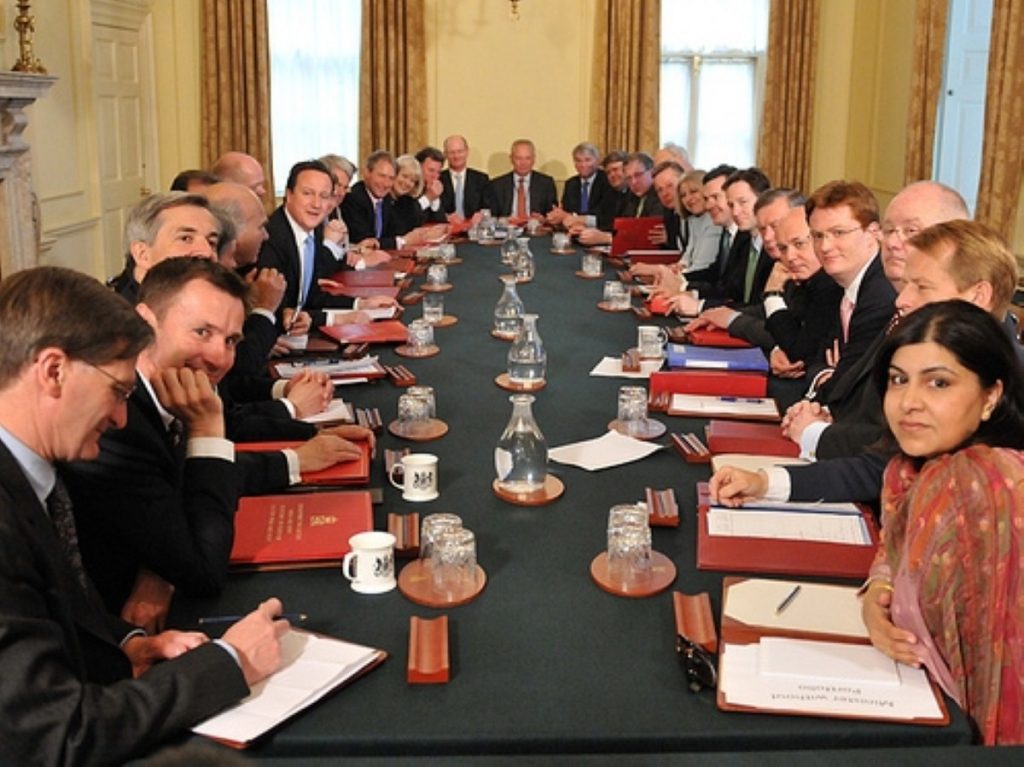Demolition government?
By Ian Dunt
The coalition government’s obsession with spending cuts has turned it into a “demolition government”, the head of the TUC has said.
Speaking to the organisation’s annual conference in Manchester, Brendan Barber said George Osborne’s mantra that ‘we’re all in this together’ was “insulting claptrap”.
“[The] coalition said cuts would be fair and spare frontline services,” he continued.


“They have broken those promises.
“What we’ve got is not just a coalition government, but a demolition government.”
He added: “What they take apart now could take generations to rebuild. Decent public services are the glue that holds a civilised society together and we diminish them at our peril.
“Cut services, put jobs in peril and increase inequality, that’s the way to make Britain a darker, brutish, more frightening place.”
Unions are debating how to oppose the government’s deficit reduction plans, with a concerted effort taking place in Manchester to form a ‘new progressive alliance’ to fight spending cuts.
TUC delegates approved a proposal for co-ordinated strike action. Asked about the proposal, the prime minister’s spokesman insisted David Cameron wanted to “get round the table” with union leaders.
Addressing the conference, acting Labour leader Harriet Harman said: “We are not going to be managerial. We are not going to be meek. We will be… dogged in protecting the most vulnerable.
“We are about to see a new coalition in Britain, a coalition of communities, trade unions and Labour – fighting back.”
Officials are engaged in fierce debate about how they can maintain public sympathy while fighting the government programme.
RMT general secretary Bob Crow suggested a campaign of civil disobedience, raising the prospect of “Batman scaling parliament and Spiderman going up Buckingham Palace” – a reference to the Fathers 4 Justice protest model.
But other union leaders were wary of the suggestion and demanded a broader approach which would make an alternative case against the cuts, as some Labour leadership candidates have done over the summer.
“Now the poll tax – that was defeated when the decent majority stood up and said ‘no’,” said Mr Barber.
“It offended the deep sense of fairness that we share in this country, indeed across party divides.
“The cuts have only just started to bite. When their full extent becomes clear I know that the country will join with us in saying ‘no’ once again to policies that are so eye-wateringly unfair”.
Mr Barber highlighted a TUC study which found the poorest 10% of workers would suffer 20% cuts in their household income because of government measures, compared to just 1.5% for the richest workers.
But the government insists that reducing the deficit is the only way to secure Britain’s long-term prosperity.
Cabinet Office minister Francis Maude insisted the government would not go to war with the unions.
“We will listen very carefully to what they say and the arguments that they make, there’s no question about that,” he told the BBC.
“We are not going back to the days where there’s a complete stand-off between the trade unions and the government. Those days are gone.”
But speaking to Sky News, business secretary Vince Cable took a tougher stand.
“The trade unions, I think, privately understand that we have to deal with this. We are not going to be intimidated by threats,” he said.
Mr Crow told the Andrew Marr programme he would boycott Bank of England governor Mervyn King’s speech to the conference on Wednesday.
“My view is that he shouldn’t be there,” he said.
“I would like to see a single unemployed person write a two-page document about how it’s hard to survive on £67 a week, not the governor of the Bank of England tell us why we have got to pull our belt in.”
Harriet Harman will address the conference today. Labour leadership candidates will be attending hustings in a bid to secure last-minute union support.












